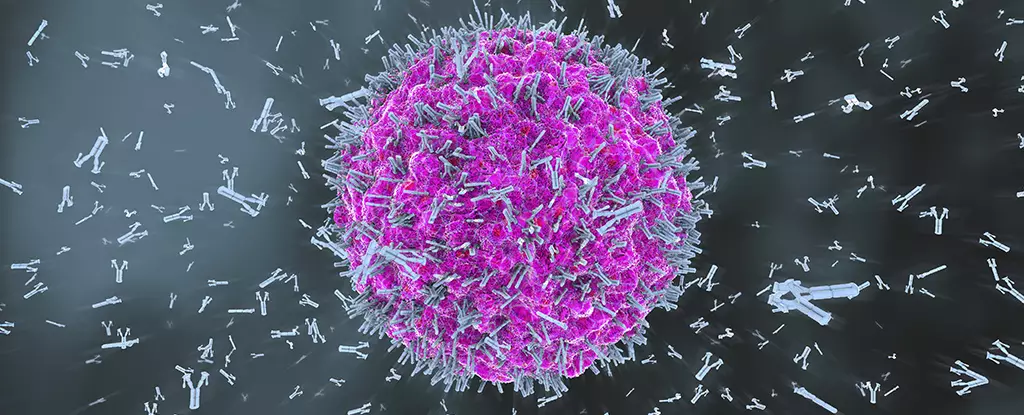The immune system plays a crucial role in protecting our bodies from invading pathogens, and any malfunction in this system can lead to serious health issues. Scientists have long been intrigued by the mechanisms that govern immune system regulation, and a recent study has shed light on a new ‘switch’ that deactivates a sensor of foreign DNA, providing valuable insight into this complex process.
One of the key players in this discovery is an enzyme known as cyclic GMP-AMP synthase (cGAS), which is responsible for identifying viruses that infiltrate our cells. This enzyme binds to foreign DNA in the cytoplasm of a cell and triggers an immune response, alerting the body to the presence of an invader. However, it is essential to tightly regulate cGAS to prevent it from causing harm, especially when it enters the nucleus of a cell.
The researchers identified a biological switch that marks cGAS for deletion in places where no immune response is needed. This switch, known as CRL5–SPSB3, adds a chemical called ubiquitin to cGAS, marking it as disposable and ensuring that it is removed from the cell when it is not needed. This mechanism prevents cGAS from attacking healthy cells and helps maintain the balance of the immune system.
The findings of this study have significant implications for autoimmune disorders, such as type 1 diabetes and inflammatory bowel disease, which occur when the immune system fails to function properly. By understanding how cGAS is regulated, researchers may be able to develop new strategies for treating these conditions and restoring immune system balance. This research highlights the importance of studying the various controls that govern immune system responses and opens up new possibilities for therapeutic interventions.
The Role of Interferon Pathway in Immune System Regulation
The study also sheds light on the interferon (IFN) pathway, which plays a crucial role in controlling immune system responses. Both cGAS and CRL5–SPSB3 are involved in this pathway, and their interaction influences the immune system’s tone and response to threats. By understanding how these proteins work together to regulate immune responses, researchers may be able to develop novel approaches for modulating immune system activity and treating immune-related disorders.
The identification of a key switch that regulates immune system responses has important implications for our understanding of immune system function and the development of new treatments for immune-related disorders. By unraveling the intricate mechanisms that govern immune system regulation, researchers are paving the way for more targeted and effective therapies that can restore immune balance and promote overall health and well-being.


Leave a Reply